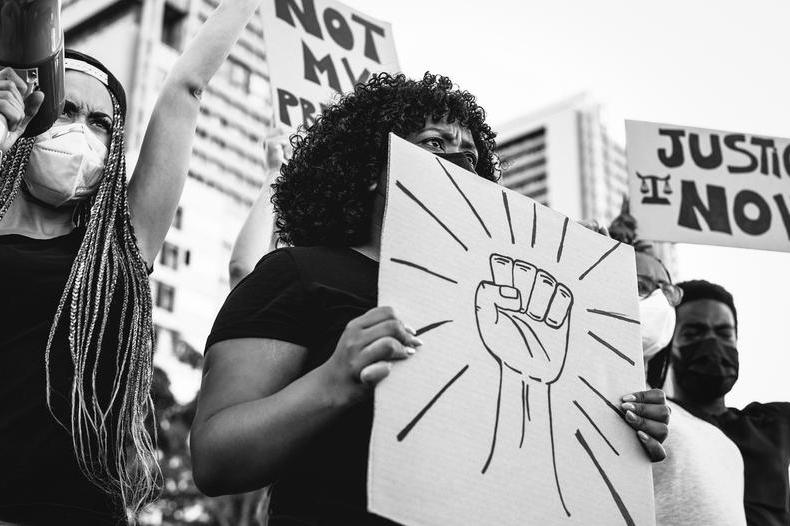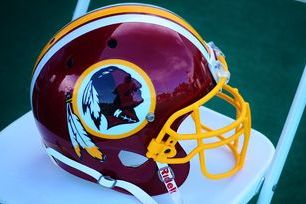Brand evolution and anti-racism– a trade mark perspective
How has the corporate world responded to the calls for a more inclusive and diverse society? We dive into the details from a trade mark perspective.

The killing of George Floyd sparked uncomfortable conversations and protests worldwide. It led to the biggest civil rights march on record and created a movement that brought the topic of diversity to the forefront.
Numerous organisations responded to the issue of racial injustice, including:
- making corporate statements
- efforts to make workforces more diverse
- investments in black businesses and charities
- apologies for historic links to slavery
- rebranding unacceptable trade marks
In this article we look at how businesses across different sectors are making significant changes in line with the anti-racism movement.
Health and Beauty
Hindustan Unilever Ltd announced plans to change its FAIR & LOVELY brand, a beauty product sold in India and Bangladesh, with trade marks dating as far back as 1978.
The alteration to GLOW & LOVELY and GLOW & HANDSOME was met with similar disapproval as the new names did not change the skin lightening nature of the product, seen to promote colourism.
The L’Oréal Group announced plans to remove ‘white/whitening’, ‘fair/fairness’ and ‘light/lightening’ from the names of its products. This is likely to affect the company’s GARNIER WHITE COMPLETE, a face wash brand sold in Asia.
Other FMCG products under review include DARLIE toothpaste sold in Asia. The product name, which translates to ‘black person toothpaste’ in Chinese, was originally DARKIE.
The mark, which includes an image of a smiling man in a top hat - earlier versions of which featured the representation of a minstrel show character, will be reassessed to counter branding that perpetuates negative racist stereotypes.
Food and drink
Mars announced plans to scrap the image of a fictional black Texan rice farmer featured in its Uncle Ben’s Rice brand, dating back to 1946. The Quaker Oats Company followed with its intention to rename the Aunt Jemima line of syrups and foods, a 130-year-old brand featuring a black woman named after a minstrel show character.
The names of these products are rooted in the history of white Americans addressing African Americans with the ‘aunt’ and ‘uncle’ prefixes, as they were deemed undeserving of ‘Mr’ or ‘Mrs’.
Similar announcements were made for ConAgra Foods’ Mrs Butterworth’s brand, B & G Foods’ Cream of Wheat porridge brand, incorporating the Chef Rastus character, and Dreyer’s Grand ESKIMO PIE ice cream bar. The packaging of the latter includes the image of a boy dressed in winter clothing. The ‘Eskimo’ is a derogatory term used by colonizers of the indigenous areas and people of the Artic region, meaning “eater of raw meat”, implying barbarism.
Nestle SA also stated plans to rename Colombian BESO DE NEGRA (translates to “kiss from a black woman”), Australian RED SKINS and CHICOS confectionery brands, amid plans to review all its product names. ‘Red skin’ and ‘chicos’ are derogatory terms for Native Americans and people from Latin America, respectively.
Entertainment
One Little Indian Records, a UK record label, changed its name to One Little Independent Records and stopped using a logo that, according to its Twitter announcement "perpetuated a harmful stereotyping and exploitation of” Indigenous Americans and made donations to relevant charities.
Lady A was announced as the new name of Lady Antebellum, the US country band. ‘Antebellum’ describes the period and architecture in the US southern states before the Civil War, closely connected to the slavery era.
There had been historic use of Lady A by the band and fans. Also, the band owned three US registrations for LADY A, from 2010, and filed a new US application before announcing the name change. The day after the announcement, a Seattle-based blues funk and soul singer, Anita ‘Lady A’ White, stated that she had used the name for the past 20 years.
Initial attempts to settle the matter have descended into a legal dispute.
A more amicable band name change is that of The Chicks, formerly The Dixie Chicks, arising from the negative connotation associated with the ‘Dixie’ element. The band mentioned that it was co-existing with a New Zealand duo of the same name. Due diligence is of utmost importance in these circumstances, even during times of urgent action.
It appears that The Chicks carried out the trade mark searches and sought to put out potential fires by seeking out their New Zealand counterparts and agreeing on coexistence beforehand.
Individual artists are making changes too. UK DJ Joey Negro announced that he would start using his real name, Dave Lee, a day after US DJ The Black Madonna stated that she would change her name to The Blessed Madonna.
Both made references to the unacceptable and controversial nature of their names driving the need for the change. The Black Madonna changed her name following a petition asking for the same. It seems that, even in instances where brands may not be aware of the inappropriate connections, the general public draw attention to them, quickly.
Sport
Very recently, businesses behind several American sporting teams and names appeared to have supported the postponement of games and matches in protest against James Blake’s shooting.
This was surprising, particularly, as racial justice and sport have long been uncomfortable bedfellows. The controversy surrounding the names of some north American sports teams are an example of this problem.
After a refreshed recent wave of objections, including from sponsors, the Washington Redskins American football team announced a change to The Washington Football Team.
The Cleveland Indians baseball team are doing the same to "embrace their responsibility to advance social justice and equality". The team had, in 2019, dropped the inappropriate Chief Wahoo logo from its uniform. Canadian football team Edmonton Eskimos recently announced plans to drop the ‘Eskimos’ element, after three years of consultation.
Whether other teams will follow in the footsteps of the above three remains to be seen. The Atlanta Braves, at the time of print, were not considering a name change and the Chicago Blackhawks issued a statement to defend the use of the name. Nothing has been heard from the Kansas City Chiefs yet.
In the UK, Exeter Chiefs Rugby Union team decided to keep its name and logo – use of which was deemed “highly respectful” – and retire its disrespectful Big Chief mascot. The team officially adopted the name and logo, containing the representation of a Native American, in 1999 but claim that the name dates to 1900s Devon.
Professional and public services
French advertising agency Rosapark is rethinking its name after criticism of the use of Rosa Park’s name. The owners of the eight-year-old agency apologised for any offence caused by the name.
This metamorphosis appears to have affected public institutions too. US Democrat Governor Gina Raimondo recently announced an executive order to change the official name of her State, from ‘Rhode Island and Providence Plantations’ to ‘Rhode Island’, due to its connection to slavery in America.
One change that did not go as smoothly as hoped was Berlin Transport Authority’s attempts to rename Mohrenstrasse (Moor Street) Metro Station Glinkastrasse, after Russian composer Mikhail Glinka, who was, apparently, anti-Semitic. ‘Moor’ was the medieval term used to describe people from North Africa. The Berlin-Mitte District Assembly recently approved the street name change to Anton-W-Amo-Strasse, after Anton Wilhelm Amo, the first scholar of African descent in a Prussian university. It is hoped the train station will follow suit.
This is a fluid situation and we will be sure to see further similar announcements over the coming months. Many will know about the background of most or all these brands. However, it may come as a shock to those who were unaware of these origins, the author included.
The time seems ripe for change and, from a trade mark perspective, our aim is to help organisations ensure that their amendments send the right message to their customers and protects their business.
Related:
Brand evolution and anti-racism – trade mark lessons
The steps you need to consider when adapting your brand and what you can learn from other brands that have made changes.



